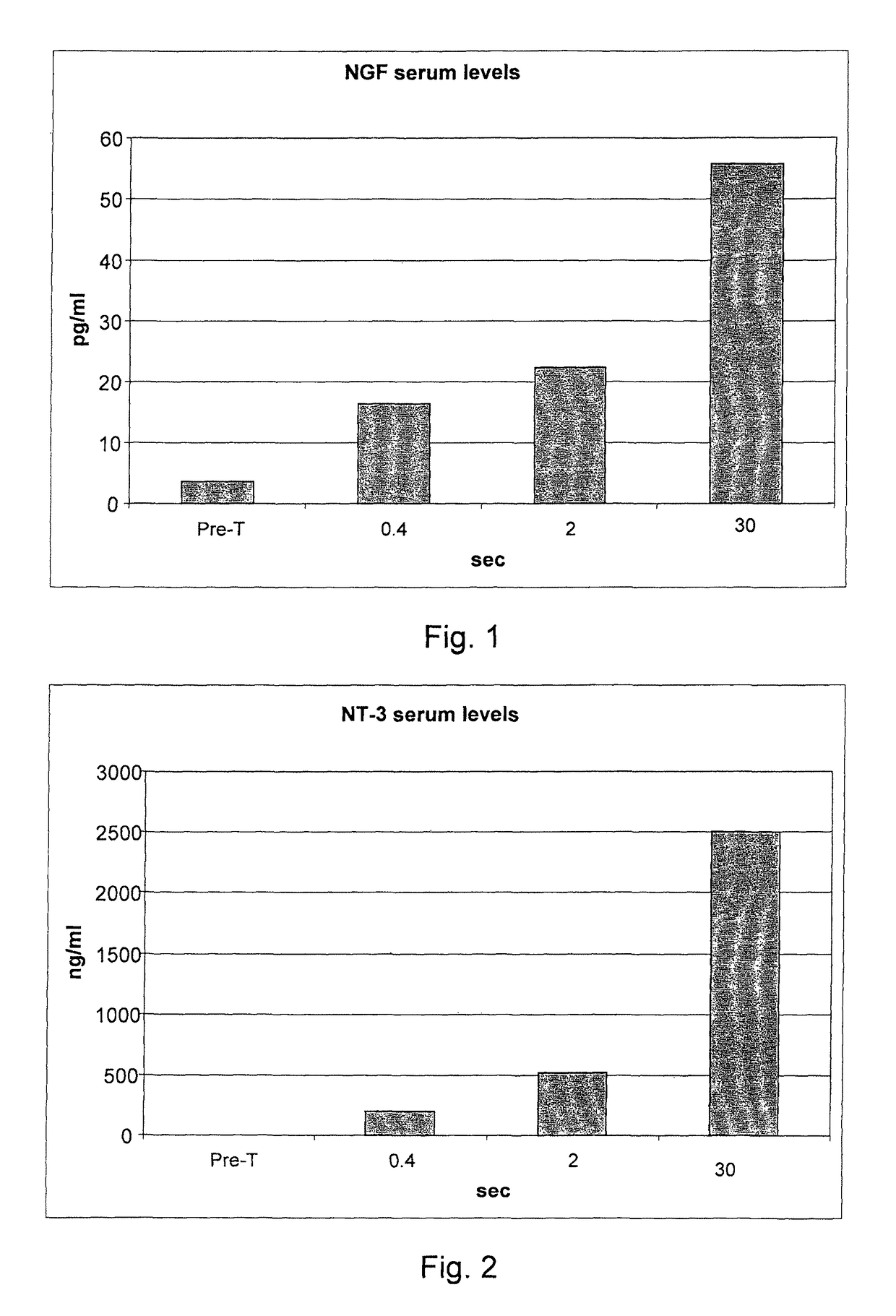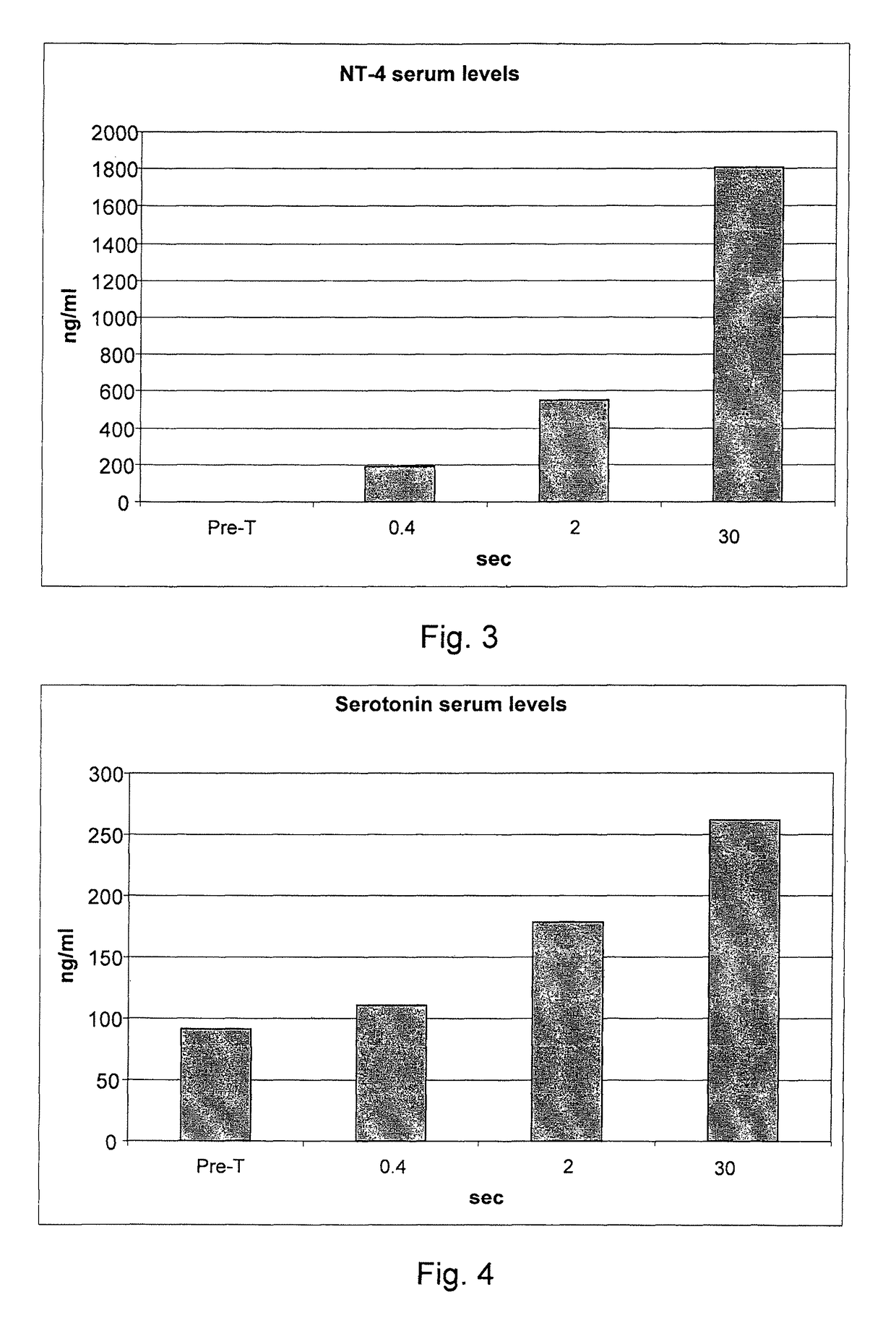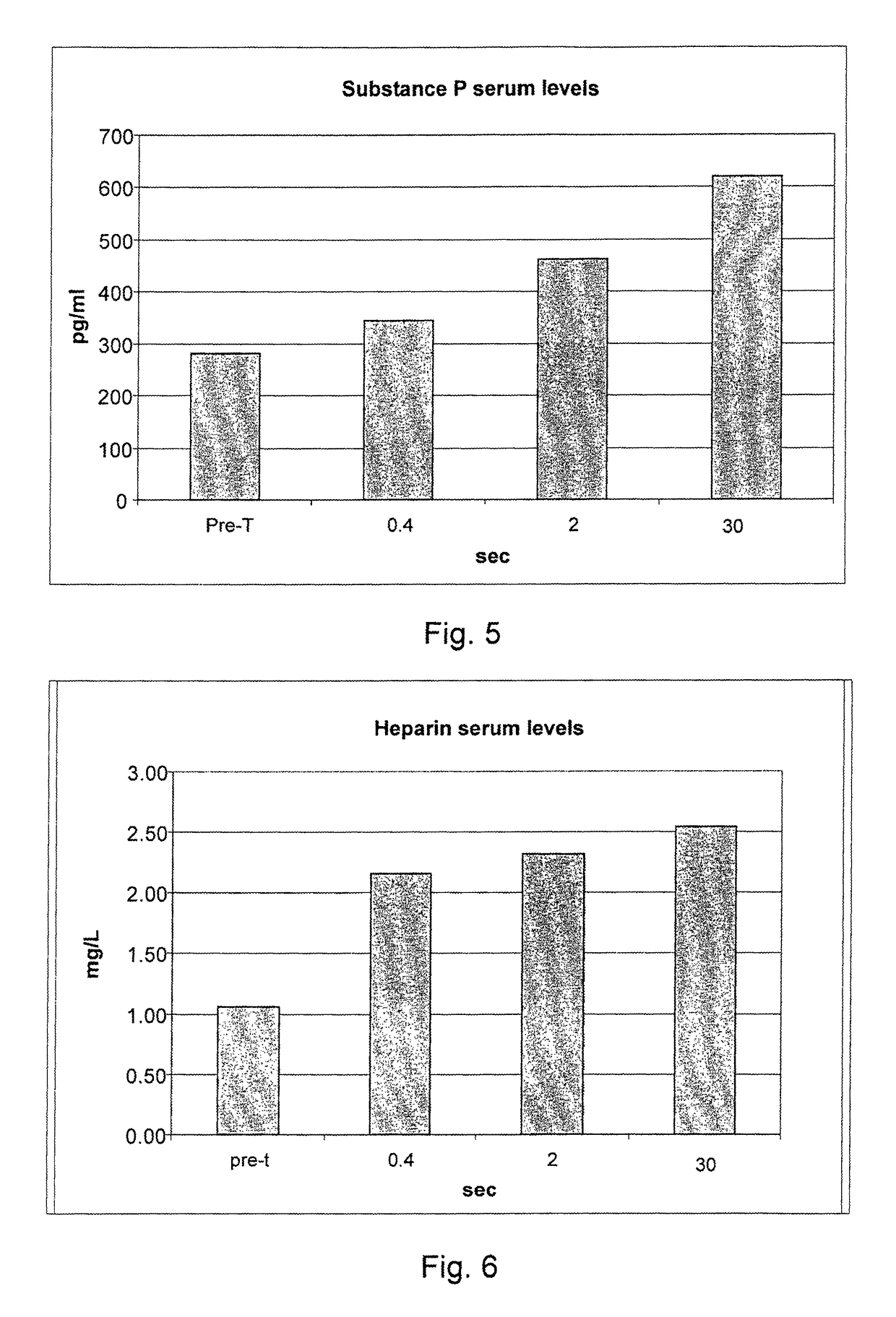Intranasal administration of agents with pro-inflammatory activity for the therapy of neurological disorders
a neurodegenerative disease and intranasal administration technology, applied in the direction of inhalators, organic active ingredients, peptide/protein ingredients, etc., can solve the problems of insufficiently cheap way of producing it, murine ngf extraction, and difficult and complex synthesis of human ngf through genetic engineering techniques, etc., to stimulate endogenous production
- Summary
- Abstract
- Description
- Claims
- Application Information
AI Technical Summary
Benefits of technology
Problems solved by technology
Method used
Image
Examples
experiment 1
Definition of the Physical Delivery Parameters
[0077]236 informed volunteers were recruited, and they underwent blood collection before treatment for the evaluation of the blood serum concentrations of the following inflammatory mediators: endogenous NGF, neurotrophin-3, neurotrophin-4, serotonin, substance P, heparin, ECF-A (eosinophil chemotactic factor of anaphylaxis).
[0078]The volunteers were divided into 59 groups of 4 subjects each. Each group of four subjects underwent all measurements that cross an individual value of the delivery time with all the values of delivery modes (for example, 0.10 seconds of delivery for the 48 different delivery modes considered in g / sec.).
[0079]After 40 minutes from each treatment a blood sample was taken for the study of the post-treatment serum concentrations of IMs. After each blood collection, for reasons of compliance by the subjects under study, a one week break was set. Owing to the various hindrances that have occurred to the individual p...
experiment 2
Aqueous Solutions Different from Distilled Water
[0103]Further tests were carried out on a group of 220 people. All subjects were submitted to blood sampling before treatment, for the evaluation of blood serum concentrations of the following inflammatory mediators: NGF, neurotrophin-3, neurotrophin-4, serotonin, substance P, heparin, ECF-A.
[0104]The subjects were treated by delivering, by the nose-paranasal route according to the invention, one of the following liquids:
[0105]distilled or bidistilled water, sterile water, saline solution (containing NaCl from 0.9% to 0.01% weight, specifically 0.9%, 0.8%, 0.7%, 0.6%, 0.5%, 0.4%, 0.3%, 0.2%, 0.1%, 0.09%, 0.08%, 0.07%, 0.06%, 0.05%, 0.04%, 0.03%, 0.02%. 0.01%, with or without addition of glucose), Ringer solution, Ringer lactate solution, Hartmann solution, sulphur solution (in water o distilled water, concentration 0.1 mg to 10 mg of H2S per liter, specifically 10.0 mg / L, 9.0 mg / L, 8.0 mg / L, 7.0 mg / L, 6.0 mg / L, 5.0 mg / L, 4.0 mg / L, 3.0 ...
experiment 3
Study on the Frequency of Delivery and Duration of Treatment
[0124]60 informed volunteers were recruited, and they underwent blood collection before treatment for the evaluation of the serum concentrations of the following inflammatory mediators: NGF endogenous, neurotrophin-3, neurotrophin-4, serotonin, substance P, heparin, ECF-A.
[0125]The sixty volunteers were all subjected to the treatment according to the invention, by administration of distilled water with PEL 5.0 g / sec and ET of 0.4 sec, once a day for one day. Then, maintaining the same physical parameters of delivery the frequency of daily treatments has been increased. Blood was collected and the serum concentrations were evaluated after 40 minutes from the end of administration of each agent.
[0126]By way of example, taking into account that the behaviour of other IMs is substantially comparable, the results of dosages of only NT-3 are reported in Table 2 below.
[0127]
TABLE 2Serum levels of NT-3 pre- and post-treatment with ...
PUM
| Property | Measurement | Unit |
|---|---|---|
| dispensing time | aaaaa | aaaaa |
| osmolality | aaaaa | aaaaa |
| osmolality | aaaaa | aaaaa |
Abstract
Description
Claims
Application Information
 Login to View More
Login to View More - R&D
- Intellectual Property
- Life Sciences
- Materials
- Tech Scout
- Unparalleled Data Quality
- Higher Quality Content
- 60% Fewer Hallucinations
Browse by: Latest US Patents, China's latest patents, Technical Efficacy Thesaurus, Application Domain, Technology Topic, Popular Technical Reports.
© 2025 PatSnap. All rights reserved.Legal|Privacy policy|Modern Slavery Act Transparency Statement|Sitemap|About US| Contact US: help@patsnap.com



